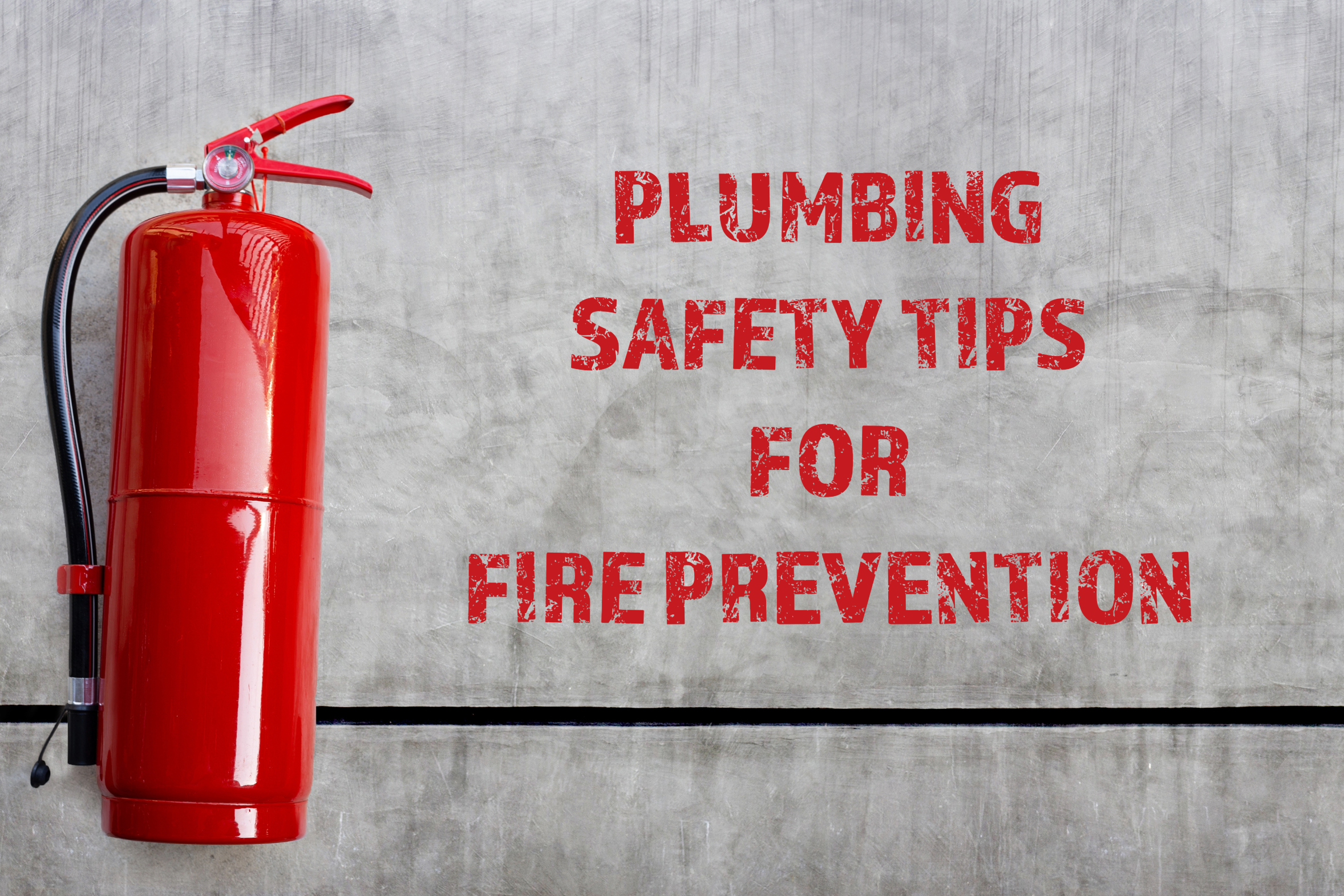October is recognized as Fire Prevention Month, a tradition stemming from the establishment of National Fire Prevention Week in 1922, which was instituted to honor the memory of the devastating Great Chicago Fire of 1871. This observance has since evolved into a month-long commitment to fire safety. This is due to the sobering statistics of approximately 358,500 house fires occurring in the United States each year, with around 5,400 being attributed to water heaters. Now, we want to stress that in no way does this vilify water heaters as inherently dangerous appliances, but as with all things in life, negligence, and improper practices can lead to detrimental circumstances. So, your Middletown Plumbing & Drain family is here to provide invaluable insights into safeguarding your home through essential water heater fire prevention measures in the hopes of averting a potential crisis.
Know Safety Risks Between Gas and Electric Water Heaters
Before we delve into specific safety recommendations, let’s try to understand the differences between gas and electric water heaters. While their energy sources differ, their operational mechanisms and internal components share notable similarities. While the ongoing debate about which type holds a safety advantage warrants our attention, our primary focus remains on comprehending their energy sources and how they operate.
Gas Water Heaters: These appliances rely on natural or propane gas for water heating. Ultimately, negligence introduces the potential risk of gas leaks and the formation of flammable vapor. In the event of a gas leak and subsequent contact between the flammable vapor and an ignition flame, the possibility of a vapor-induced explosion arises. The good news is that most contemporary water heater models incorporate sealed compartments at their base, which effectively shield the ignition flame from potential exposure to flammable vapors. But to err on the side of safety, we recommend installing a Carbon Monoxide & Explosive Gas Detector in your home – an essential measure regardless of your water heater’s age. These advanced detectors offer the capability to detect not only carbon monoxide but also natural gases such as methane and propane.
Electric Water Heaters: Electric water heaters draw their power exclusively from electricity, which necessitates vigilant monitoring for signs of overheating or electrical fires. (Click here for more in-depth information on electric water heaters overheating.) A multitude of factors may contribute to water heater overheating, prompting a recommendation to explore potential solutions. If the water heater’s temperature exceeds 140ºF, we advise lowering it. If the issue persists after lowering the temperature, please seek professional assistance. As a general guideline, water heaters are typically set within the range of 120ºF to 140ºF.
Know the Safety Measures for Water Heater Fire Prevention
- Flammable Material Safety: Ensure that flammable materials are securely stored at a significant distance from your water heater. These items include but are not limited to paint cans, empty gasoline containers, oily rags, household chemicals, cleaning products, cardboard boxes, stacks of paper, wood furniture, and plastic bottles. For those with a water heater in their garage, you’ll want to exercise caution when storing items such as lawnmowers, which require gasoline near the unit.
- Shut-off Procedure Familiarity: Acquiring a firm grasp of the procedures for shutting off your water heater is prudent. While you may not anticipate an immediate need for this knowledge, it’s truly valuable in situations that demand swift and decisive action.
- De-clutter for Enhanced Safety: You should maintain an uncluttered space in the vicinity of your water heater. You want to provide sufficient “breathing room” for your water heater, ensuring unhindered airflow. Items around or in front of your water heater obstruct this vital airflow and represent a tangible fire hazard.
- Annual Plumbing Inspections: Enlisting the services of a certified plumber to perform an annual plumbing inspection is a proactive approach to preserving the optimal functioning of your plumbing system. These comprehensive assessments include a wide array of inspecting all plumbing system components, ranging from pipes and drainage systems to sinks, toilets, showers, water heaters, and other plumbing-related appliances. The benefits are twofold: it maintains the integrity of your plumbing system and detects potential issues in their early stages, thereby averting the development of more substantial and potentially hazardous problems in the future.
Safety and the exercise of responsible maintenance of your water heater are essential. Our utmost priority is to guarantee the safety and well-being of both you and your family. Give us a call to learn more about our Whole Home Protection Plan. We’ve got you covered when it comes to keeping your home and HVAC system in tip-top shape!
Stay safe and call Middletown Plumbing & Drain for all your plumbing needs today at (937) 298-9979, or schedule an appointment online now by clicking here!

